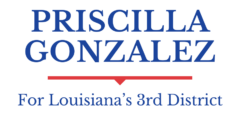Nestled in southeast Louisiana, Terrebonne Parish boasts a rich cultural legacy and history, molded by its distinct topography and varied population. The parish was founded in 1822 and got its name from a French phrase that means “good earth,” signifying the rich soil that has long supported farming and fishing. The region was first settled by Native American tribes, such as the Houma, and then by French settlers who introduced their customs, language, and farming methods.
Thanks to its advantageous location along the bayous and the Gulf of Mexico, Terrebonne Parish developed as a hub for sugar cane cultivation and fishing throughout the 19th century. Building levees and railroads boosted economic expansion by enabling trade and transportation. The parish has seen difficulties over the years, including flooding and hurricanes, which have put the citizens’ fortitude to the test. In addition to its rich history, Terrebonne Parish is a thriving community that has adapted to the needs of the modern world while maintaining its natural riches and cultural identity.
Main Problems Facing Terrebonne Parish
Economic challenges
Employment Opportunities: The local economy is more susceptible to market swings due to a lack of economic diversification and a reliance on a small number of important businesses, such as fishing and oil and gas.
Underemployment: A lot of locals might work in jobs that don’t completely use their skills, which would result in lower pay and unstable finances.
Environment-Related Risks:
Coastal Erosion: As a result of rising sea levels and coastal erosion, the parish is losing a lot of land, endangering residents and natural areas.
Natural Disasters: Homes and infrastructure are at constant risk from hurricanes and flooding, which occur frequently.
Problems with the Infrastructure:
Transportation: Aging roads and bridges make it more difficult to move people and commodities efficiently, which has an impact on both businesses and communities.
Public Facilities: The lack of maintenance or modernization in many community facilities restricts access to leisure and cultural activities.
Access to Healthcare:
Limited Services: It may be difficult for residents of the parish’s rural sections to get timely medical attention due to a lack of suitable healthcare facilities.
Health Disparities: Poorer areas may have a greater prevalence of chronic illnesses, which are made worse by a lack of access to preventative treatment.
Challenges in Education:
Funding Disparities: Schools in low-income communities may experience financial difficulties, which can cause differences in the resources and quality of instruction.
Dropout Rates: The number of students who drop out of high school might have an impact on their chances of finding employment later in life.
The Solution:
To address the financial difficulties facing Terrebonne Parish, it is imperative to broaden the local economy by drawing in new sectors like technology, tourism, and renewable energy. By collaborating with community colleges to implement workforce development programs, residents will be able to acquire skills relevant to these expanding sectors, which will decrease underemployment and increase salaries in the area. Providing tax breaks to regional business owners can help boost employment and economic expansion.
Resilience in the environment is essential to the parish’s future. Comprehensive disaster preparedness strategies will improve preparedness for natural catastrophes, while investments in coastal restoration projects would prevent land loss and safeguard communities. Furthermore, contemporary public amenities and safe transportation can be guaranteed by funding infrastructure improvements through state and federal programs. In addition to ensuring that all students have access to high-quality materials, expanding healthcare access through telemedicine and mobile clinics will enable underserved communities to get critical services. When combined, these ideas can improve Terrebonne Parish and create a thriving, resilient neighborhood.
I pledge to put forth great effort to address these urgent concerns in Terrebonne Parish if elected as your congresswoman. My priorities will be expanding access to high-quality healthcare and education for all locals, promoting economic diversification, and strengthening environmental resilience. I think that by working together with stakeholders and community leaders, we can put into practice practical solutions that bring about long-lasting change. By working together, we can ensure that every citizen of Terrebonne Parish has the chance to prosper and create a better future for the parish.
